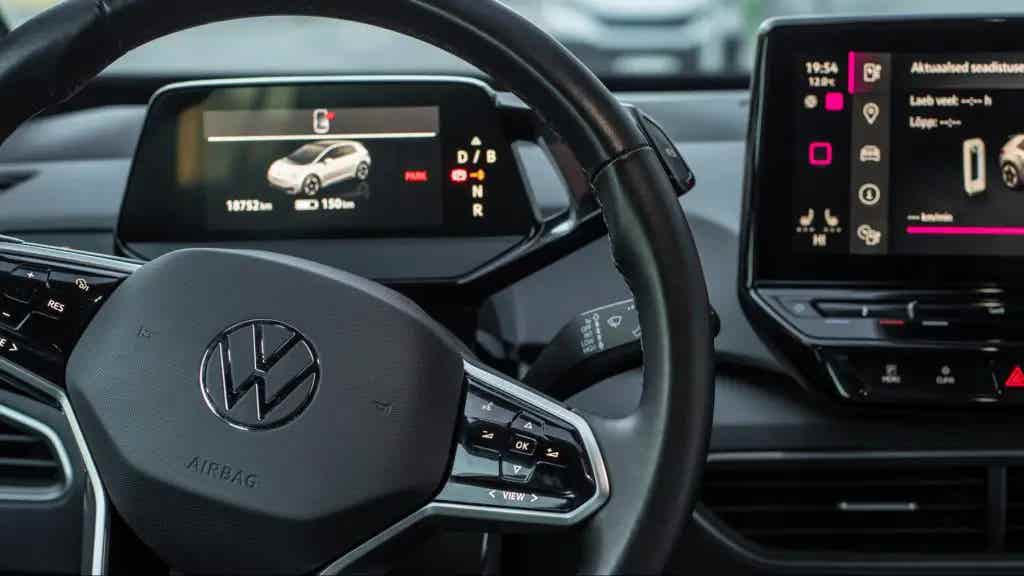Volkswagen’s newest vehicles to feature ChatGPT for enhanced communication
Volkswagen (VW) recently revealed plans to incorporate OpenAI’s ChatGPT into its vehicles, scheduled to roll out in the 2nd quarter of 2024.

[Jan. 19, 2024: JD Shavit, The Brighter Side of News]
This announcement marks VW as a frontrunner among automakers embracing the potential of generative artificial intelligence (AI) for in-car experiences. (CREDIT: Creative Commons)
In a move that solidifies its commitment to innovative technology, Volkswagen (VW) recently revealed plans to incorporate OpenAI's ChatGPT into its vehicles, scheduled to roll out in the second quarter of 2024.
This announcement marks VW as a frontrunner among automakers embracing the potential of generative artificial intelligence (AI) for in-car experiences.
The implementation of ChatGPT is not limited to a specific model; instead, it will be available across VW's extensive lineup, spanning models such as the Tiguan, Passat, and Golf, as well as the automaker's ID family of electric vehicles. The feature will initially launch in Europe, with the possibility of expanding to the United States, pending finalization of plans.
VW's primary objective with ChatGPT is to enhance its existing in-car voice assistant, known as IDA, enabling more natural and seamless communication between drivers and their vehicles. With this super-powered voice assistant, vehicle owners can exercise control over basic functions, including heating and air conditioning.
Related Stories
Additionally, drivers can pose "general knowledge questions," although VW advises exercising discretion due to ChatGPT's occasional propensity to provide inaccurate information.
VW emphasizes that it won't impose the burden of creating new accounts or installing additional applications on users. The chatbot can be activated through the use of a simple wake word, "Hello IDA," or by pressing a button on the steering wheel.
Furthermore, VW assures consumers that OpenAI will not have access to their driving statistics, as all questions and answers are promptly deleted to uphold the highest standards of data protection.
VW envisions ChatGPT evolving to offer more valuable functions, enriching conversations, resolving queries, engaging in intuitive language interactions, delivering vehicle-specific information, and much more – all while ensuring a purely hands-free experience for drivers.
Traditionally, most vehicle voice assistants have been limited to basic functions like adjusting seat heaters or defrosting windows. These systems often falter when faced with more complex navigational requests, leading to false positives and the need for repetitive vocal instructions. In response, many automakers have turned to third-party options like Google's Assistant and Amazon's Alexa to bolster their in-car voice systems.
It is worth noting that ChatGPT and other large language model chatbots have faced challenges related to the dissemination of false information, and OpenAI has been embroiled in defamation and copyright infringement lawsuits in connection with these issues.
While the annual Consumer Electronics Show (CES) in Las Vegas serves as a platform for many automakers to announce their plans to enhance vehicles with generative AI and large language models, VW stands out as the first automaker to officially embrace ChatGPT, known for igniting the latest AI arms race.
VW attributes its seamless integration of OpenAI's chatbot to Cerence, a third-party software company specializing in "automotive-grade" ChatGPT integrations. Cerence's Chat Pro software will empower VW's voice assistant to provide relevant responses to virtually any query, enhancing the overall in-car experience.
In light of the challenges faced by VW in 2023, including disappointing sales growth, software glitches, and layoffs, the company's decision to embrace AI technology appears to be an effort to regain momentum and foster an image of technological innovation. It remains to be seen whether VW's bold move with ChatGPT will pay off, but the company's willingness to embrace this technology reflects the automotive industry's growing reliance on AI-driven solutions.
As VW ventures into uncharted territory with ChatGPT, it will be interesting to observe how this integration shapes the future of in-car technology and the driving experience. Only time will reveal the true impact of this bold step into the world of AI-powered automotive communication.
Note: Materials provided above by The Brighter Side of News. Content may be edited for style and length.
Like these kind of feel good stories? Get the Brighter Side of News' newsletter.
Joshua Shavit
Science & Technology Writer | AI and Robotics Reporter
Joshua Shavit is a Los Angeles-based science and technology writer with a passion for exploring the breakthroughs shaping the future. As a contributor to The Brighter Side of News, he focuses on positive and transformative advancements in AI, technology, physics, engineering, robotics and space science. Joshua is currently working towards a Bachelor of Science in Business Administration at the University of California, Berkeley. He combines his academic background with a talent for storytelling, making complex scientific discoveries engaging and accessible. His work highlights the innovators behind the ideas, bringing readers closer to the people driving progress.



